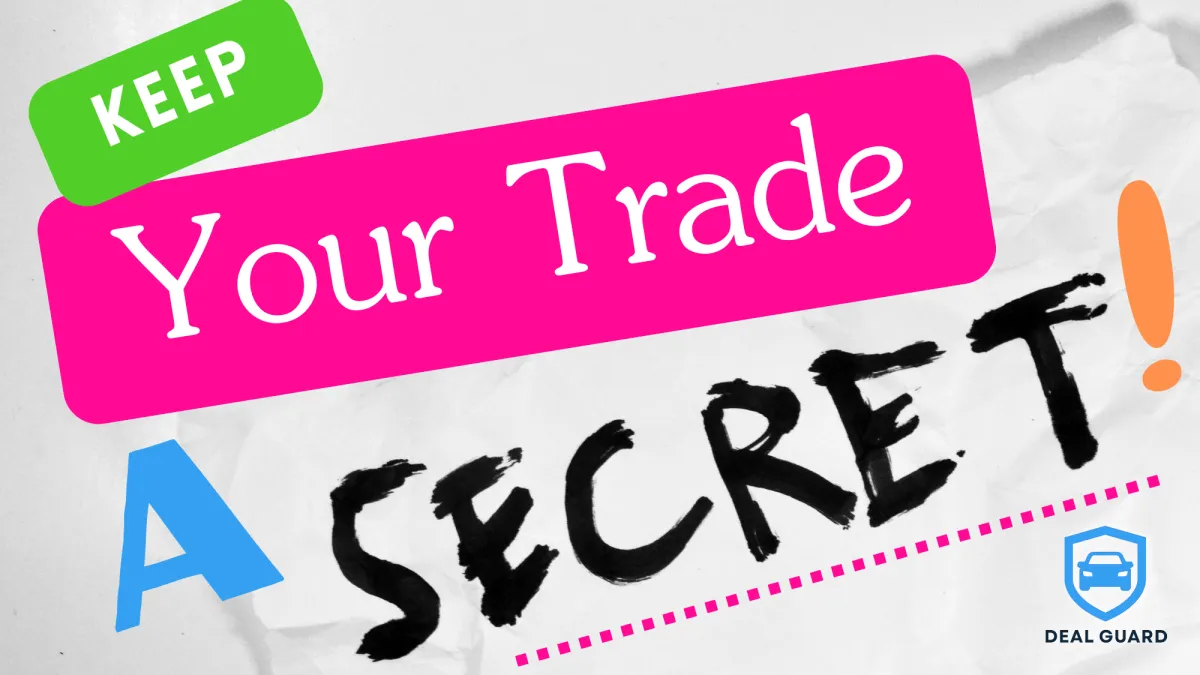
Tip #2 - Never Reveal Your Trade-In Too Early
Tip #2 — Never Reveal Your Trade-In Too Early
"Telling the dealer about your trade-in too soon is like showing your poker hand before the first bet." - Chase Jordan
Here’s another top-shelf tip for getting the best possible car deal: never mention your trade-in early in the negotiation. Not when you first walk in.
Not during the test drive.
Not when they ask, “Are you trading something in today?”
Why?
Because the second you reveal you’ve got a trade-in, the dealership starts working a different kind of deal — one that benefits them more than it benefits you.
At Deal Guard, your trusted car buying concierge and consultant, we teach every client to protect this information like it’s classified.
Let’s break down why.
🎯 Why Dealers Want to Know About Your Trade Early
Dealers aren’t asking out of curiosity. They’re asking because they want to:
Restructure the deal around your trade
Manipulate the price of the new car
Hide discounts in your trade allowance
They might say things like:
“Let’s see what we can offer you.”
“We can give you more for your trade if you buy today.”
“We’ll give you top dollar!” (Spoiler: they won’t.)
What they’re doing is setting the stage to blend two negotiations into one.
And that’s when you lose control of the numbers.
🧠 The Psychology of Blended Deals
If you tell them about your trade before negotiating the car price, here’s what happens:
They raise the price of the new car.
Then they show you a “generous” offer on your trade-in.
The final number looks okay, but the math is rigged.
Let’s say:
The car is listed at $30,000
You negotiate it down to $28,000
But you told them about your trade worth $10,000
Now they say:
“We’ll give you $11,000 for the trade, but the car’s price goes back to $30,000.”
You lost your hard-earned discount. Poof. Gone. 💨
🔒 When Should You Mention the Trade?
Only after the price of the new car is fully negotiated and in writing.
Here’s the ideal sequence:
Agree on the vehicle price (out-the-door, of course).
Lock in any incentives or financing offers.
Then — and only then — say: “I do have a trade-in.”
That way, your trade becomes a separate transaction. Two deals. Two negotiations. No funny business.
🛡 How Deal Guard Handles Trade-Ins
As your professional car buying consultant, we:
Negotiate the vehicle price first, every time
Keep your trade off the table until the timing is right
Shop your trade separately if needed (online offers, cash buyers)
Analyze whether trading in or selling privately makes more sense
Ensure any trade value isn’t being used to hide inflated new car costs
We’ve seen trade-ins devalue a good deal more often than not — especially when buyers trust the “we’ll take care of everything” talk. No thanks.
📉 How Dealers Manipulate Trade Value
Watch out for these trade-in tricks:
"Over-allowance": they give you more for your trade but quietly raise the car price
"Under-appraisal": they say your car is worth less than it is
"Equity swap confusion": they use your trade equity to lower payments without lowering price
"Double-dipping": charging reconditioning fees and offering low trade value
All smoke. All mirrors. That’s why Deal Guard clients never trade blind.
💡 Other Smart Trade-In Tips
Get real market value offers before you visit the dealer (Carvana, CarMax, Vroom, etc.)
Clean your car, remove personal items, and bring two sets of keys
Have service records ready
Know your payoff if you still owe on the vehicle
Don’t accept “we’ll appraise it after we run numbers” — it’s a trap
😎 Final Word from Chase
Your trade-in can be a powerful part of your deal — if used correctly. But if you bring it up too soon, the dealer controls the game.
At GetDealGuard.com, we help clients time the trade perfectly, negotiate each part of the deal separately, and avoid getting shortchanged.
🎯 Thinking of trading in your car? Call Deal Guard first.
We’ll show you how to use your trade to your advantage — not the dealer’s.
